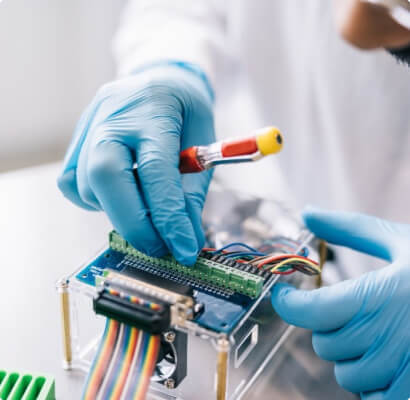AI-Powered Robotics in Logistics and Material Handling
AI-powered robotics is playing a vital role in transforming logistics and material handling operations, ensuring greater efficiency, accuracy, and cost savings across industries. Automated robots equipped with AI are now capable of managing inventory, transporting goods, and optimizing supply chain processes without human intervention.
One of the most widespread applications of AI in logistics is autonomous warehouse robots. These robots use computer vision, LiDAR navigation, and deep learning algorithms to locate and transport materials inside large warehouses. Unlike traditional conveyor belts or manually operated forklifts, autonomous mobile robots (AMRs) can navigate warehouse floors independently, dynamically adjusting their paths to avoid obstacles and optimize delivery routes. This allows companies like Amazon and Alibaba to process orders faster and more efficiently.
Another key innovation is AI-driven robotic sorting systems. These machines use advanced image recognition and deep learning to sort products based on size, shape, barcode data, and even destination. In distribution centers, robotic sorting arms work alongside AI-powered conveyor belts to process thousands of packages per hour with near-perfect accuracy. This automation minimizes sorting errors, reduces shipping delays, and enhances overall supply chain reliability.
AI-powered robotic picking systems are also revolutionizing e-commerce fulfillment. Traditionally, warehouse workers manually retrieve and pack items for shipment, but AI-enabled robotic arms now perform these tasks with remarkable speed and precision. Using machine learning, robotic pickers identify different objects, calculate the best grip approach, and handle products safely without damaging fragile items.
Additionally, AI in automated inventory management is reducing inefficiencies in supply chain operations. AI-powered systems track stock levels in real time, forecast demand fluctuations, and reorder supplies when needed. These intelligent systems prevent overstocking and stockouts, helping companies optimize their inventory and reduce costs.
By leveraging AI-powered robotics in logistics and material handling, industries are experiencing faster processing speeds, improved accuracy, and streamlined supply chain operations. As AI continues to advance, robotic automation will further enhance warehouse efficiency and distribution networks, ensuring seamless product delivery to customers worldwide.

